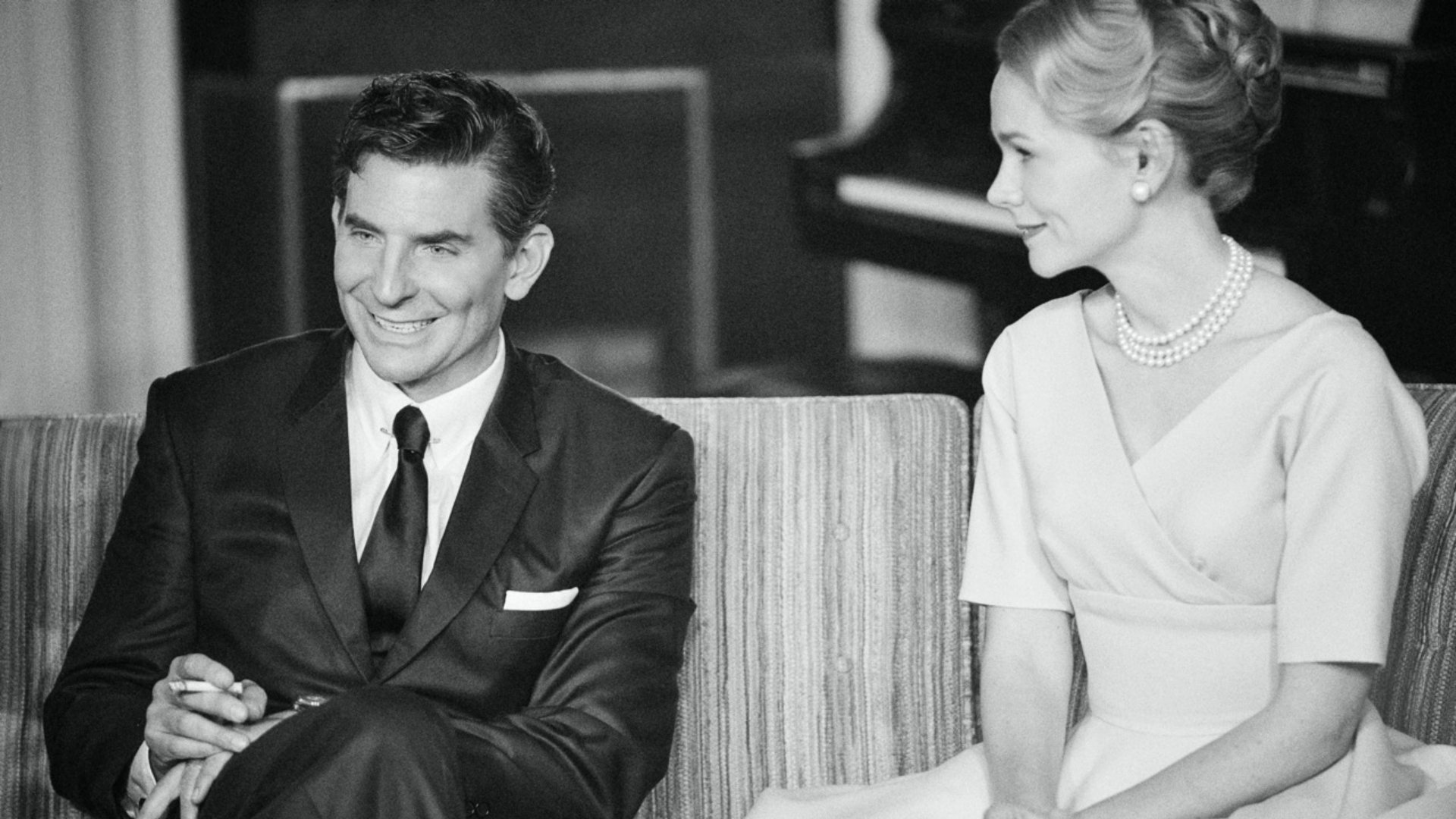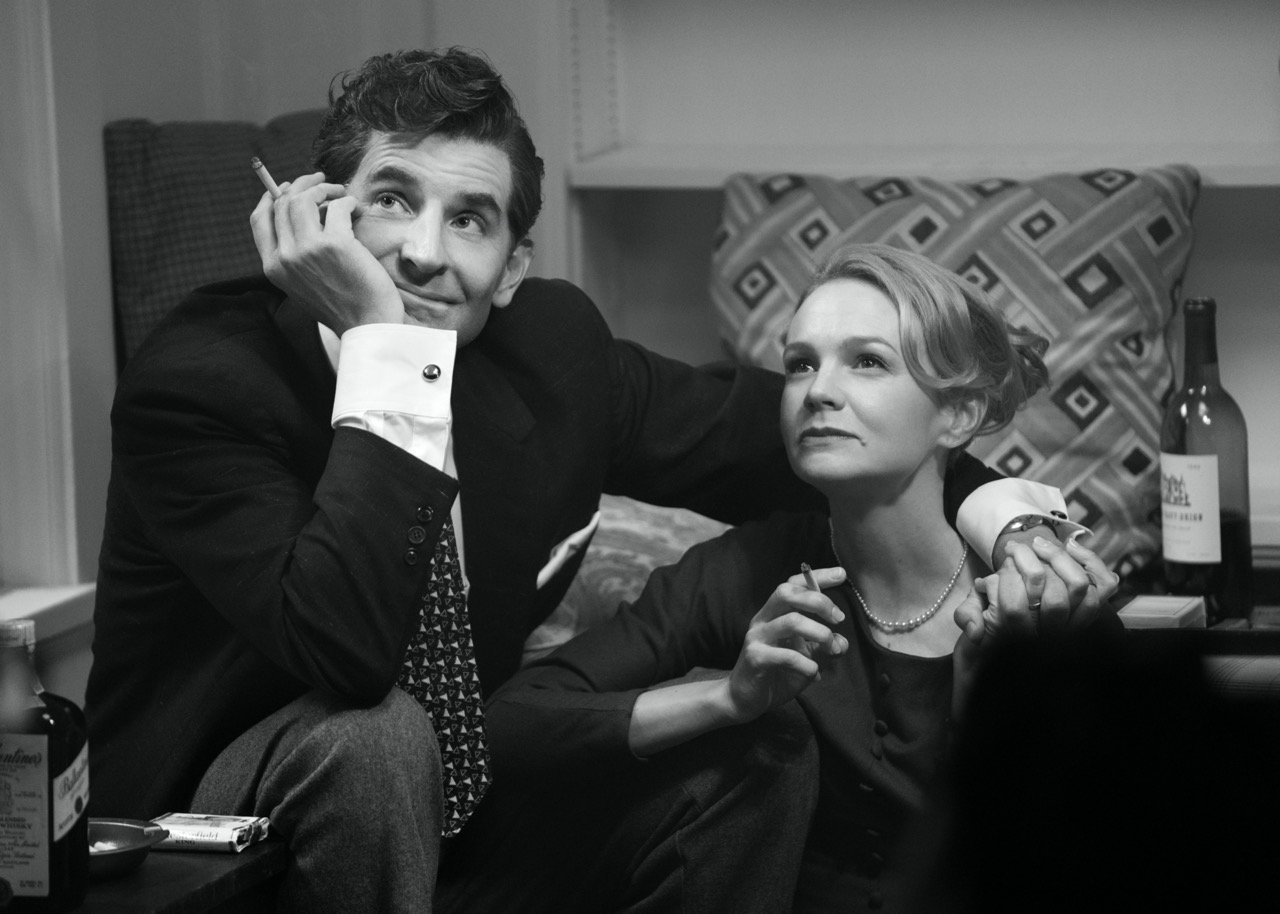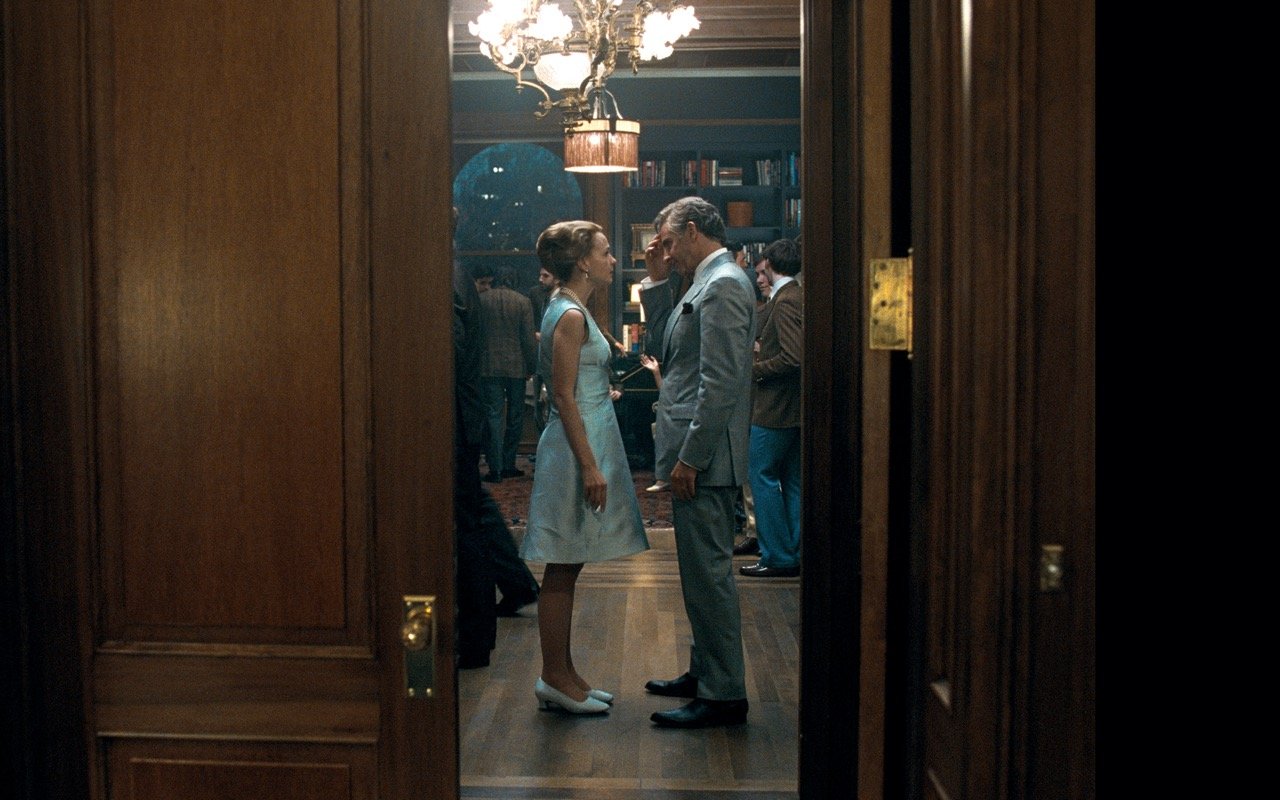'Maestro' Review: Bradley Cooper's Earnest Bio-Drama Emphasizes the Bi in Leonard Bernstein
R: For some language and drug use.
Runtime: 2 Hours and 9 Minutes
Production Companies: Sikelia Productions, Amblin Entertainment, Lea Pictures, Fred Berner Films
Distributor: Netflix
Director: Bradley Cooper
Writers: Bradley Cooper, Josh Singer
Cast: Carey Mulligan, Bradley Cooper, Matt Bomer, Maya Hawke, Michael Urie, Brian Klugman
Release Date: November 22, 2023 (Theaters) | December 20, 2023 (Netflix)
In Theaters and Netflix
Leonard Bernstein. Outside of the name drop in R.E.M.'s "It's the End of the World As We Know It (And I Feel Fine)" and his iconic work on West Side Story, I didn't know diddly squat about him. The last person in the world I expected to educate my repressed but ignorant musical theater butt was Bradley Cooper, who might as well be the greatest nerd when it comes to legends of stage and sound. As impressive as his contemporary take on A Star is Born was, Maestro is Bradley Cooper going total wide-eyed musical theater nerd, for better or worse. By the time Maestro ended, I was like, "Yup, this was made by the same kid who was geeking out after eloquently asking Robert De Niro a question on Inside the Actors Studio when he was a baby actor."
Told through the memories of an elderly Bernstein (Bradley Cooper) during an interview, Maestro chronicles the complicated relationship between the bisexual conductor prodigy and his wife, actress Felicia Montealegre (Carey Mulligan). Across the decades of their relationship, they go through a series of hurdles, mainly regarding Leonard's unfaithfulness, which drives a wedge in their relationship.
Bradley Cooper wears his acting passion on his sleeve. As conductor and centerstage star, Cooper went full “grad student doing his research paper” mode on the figure and delivered a sublime performance as Bernstein. Cooper elicits endless charisma that captures the figure's essence (I watched some videos for reference). I was fond of how he physically expressed the fluidity and liberated joy in his vocal inflection and motion like a kid on a continuous sugar rush (or just a regular theater person on Adderall). Only in the theater space will a bisexual man tell a couple's infant, "I slept with both of your parents 'cause I love people so much," and his parents laugh at it. That was just who Lenny B. was. But man, those scenes where Bernstein is conducting an orchestra, and it's all perceived from Felicia's lens, are breathtaking as Cooper confidently portrays Lenny's passion onscreen.
The bio-drama structurally plays on two facades. The first half recounts the early days of Lenny and Felicia's merry romance conveyed in whimsical, picturesque black-and-white visuals with sweeping, beautifully shot transitions and imagery. Matty Libatique's immaculate cinematography illustrates the quick motion of Lenny's hippocampus, albeit overcompensating for some hollow writing early on. There's a fantastic dance number where Lenny and Felicia watch dancing sailors on stage, which becomes a vivid metaphor for his sexuality. The last time I saw an intricate song and dance as an extended metaphor for a man and his sexuality was when Mac found his pride.
ADVERTISEMENT
In its second half, Maestro colors the scenery, washing away the honeymoonish areas of their marriage and magnifying their strains. Both sides share the same hook: You can't spell Bernstein without bi.
I gravitated toward the entire second act, which focuses on the minutiae of their marriage, specifically from Felicia's perspective, illustrating Lenny's uncontrollable free-queer spirit. Early on in their partnership, she recognizes his queer fluidity and says to him, "I know exactly who you are. Let's give it a whirl." Lowkey, they invented contractual polyamory. The sacrifices she made throughout his career to ensure his greatness are simultaneously fascinating and devastating, especially once he's straight-up committing adultery. She couldn’t care less about the affairs, but it's the carelessness that pisses her off. Little dynamic examinations like that are so fun to dissect. Similar to Anatomy of a Fall, it's enthralling to see these genuine queer stories that discuss an out spouse's sexual fluidity. Cooper comprehends Bernstein's flaws and complexities, diving below the surface.
Carey Mulligan is remarkable in Maestro as she channels a larger depiction of joy, warmth, sacrifice, and loneliness pitted by her husband with as many subtleties and travesties as her role in Wildlife. Once again, she sends shivers down your spine after watching her steady, slow-burn explosion in rightful anger towards her husband and his foolishness in a captivating argument scene. And as someone with a Snoopy tattoo, it is the best Snoopy cameo in cinema history.
Cooper's accent is too exaggerated, veering to the point of impersonation rather than performance, which for someone like Bernstein says a lot. Cooper is pulling double duties once again. Yet, I can't help but wonder what kind of subtleties he could capture if he were strictly directing someone else as the lead rather than himself.
Maestro is Cooper upgrading his directorial spirit, but his fondness for the Bernsteins led him to bite off more than he can chew. The script, penned by him and Josh Singer (Spotlight, The Post), tries to cram in many notable aspects of their careers and traits that barely leave any room to flourish with complexity. Spending too much time being flashy in its black-and-white sections and abridging how they got together affects the pacing. Since its framing device is Lenny in a post-Felicia world, Cooper drags out her passing, which could be better timed, if not tonally abrupt.
Strengthened by Carey Mulligan and Bradley Cooper elevating his director skills, the versatile, stylistic Maestro is a passionate, detailed analysis of Lenny and Felicia's romance as powerful as a Bernstein performance.









